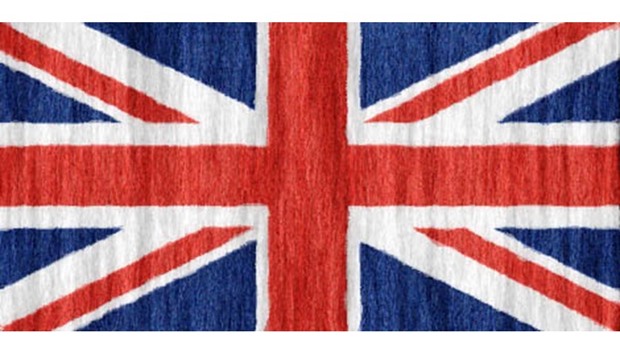Tony Blair faces a backlash from Labour MPs for fuelling the party’s divisions over Brexit, as he launched a campaign to keep the UK in the EU ahead of two crucial byelections in leave-voting seats.
In a major intervention on Friday, the former prime minister accused a weakened Labour party of allowing Brexit to happen, and called for a cross-party political movement to persuade people that the costs of leaving will be painful.
“The debilitation of the Labour party is the facilitator of Brexit.
I hate to say that, but it is true,” he said in the speech at Bloomberg in central London.”What this means is that we have to build a movement which stretches across party lines, and devise new ways of communication.”
His call for millions to “rise up” against Brexit was met with enthusiasm by some of the 47 Labour MPs opposing Brexit and senior Lib Dems such as Nick Clegg and Tim Farron.
Nicola Sturgeon, the SNP leader and first minister of Scotland, also praised Blair’s “quality of analysis and argument”, after he acknowledged Brexit had made the case for Scottish independence “more credible”. However, the speech was viewed as highly unhelpful by Labour figures campaigning in a tight battle against Ukip and the Tories to retain seats in Stoke-on-Trent Central and Copeland, where the party is trying to emphasise its support for triggering article 50 and respecting the result of the referendum.
About 70% of referendum voters in Stoke, and about 60% of the electorate in Copeland wanted to leave the EU on 23 June.
Jeremy Corbyn was dealt another blow on Friday as the Labour leader’s longstanding campaigns director, Simon Fletcher, left to pursue new projects.
Among those challenging Blair’s message was Jenny Chapman, a shadow Brexit minister, who questioned the “interesting” timing of the speech and said it “won’t help”. While stressing her respect for Blair, she said: “It would be a mistake [to argue to stay in the EU] and I don’t think that is where the majority of the country is whether they voted leave or remain … Especially outside of London I don’t think that’s going to cut much ice.”
Corbyn’s team had no comment on Blair’s intervention, but one of his close allies, Richard Burgon, the shadow justice secretary, said the former prime minister was “wrong on this and Labour is right to disagree with him”. The biggest concern among some Labour MPs in leave-voting seats was that the party would appear to be undermining the referendum result.
Returning from a day of campaigning in Stoke, Caroline Flint, the Labour MP for Don Valley and a former minister under Blair, said: “It’s not about whether Tony Blair is entitled to an opinion or whether it was this week or next week, it’s about whether the advice he is giving is right. I think it is bad advice, because what Tony seems to be advocating is leaving is not inevitable and if people work hard enough, he’s hoping he can force with others a second referendum.
My view is that is asking for a two-year campaign to undermine the vote, when I think we need to respect the vote and work hard to get the best deal.”
David Winnick, the Labour MP for Walsall North, even raised doubts about Blair’s commitment to the party.”There will be a feeling amongst a good number of Labour people that the timing is unhelpful,” he said.
“Perhaps this is unfair to a former leader, whom most recognise did so much, but there is a feeling that he is moving away from the party and it doesn’t really matter to him whether there are crucial byelections or not.
One senior Labour adviser added: “It should make everyone angry. It’s about Tony Blair and not about the Labour party. If it was about the Labour party, he would have waited another week until the byelections are out of the way before making an attack on his own party.”
The government’s rejection of Blair’s speech was led by Boris Johnson, the foreign secretary, who said the EU debate was over and Blair’s speech was “insulting the intelligence of the electorate”with calls for them to think again.
“I respectfully say to Tony Blair, who urges the British people to rise up, I urge them to rise up and turn off the TV next time Blair comes on with his condescending campaign,” he said.
Some remain supporters were also concerned that Blair was not the right messenger for the campaign to keep Britain in the EU.
Caroline Lucas, the Green party co-leader, called it “staggeringly unhelpful” and said it would be better if Blair “butted out” of the debate.
However, Blair mounted a defence of his right to make the case in favour of staying in the EU, arguing people’s opinions were not immutable and debate about the wisdom of Brexit should not be stifled.
“They will say the will of the people can’t alter. It can. They will say leaving is inevitable. It isn’t. They will say we don’t represent the people. We do, many millions of them and with determination many millions more,” he said.
Challenged about whether he was the right messenger, Blair said: “This a free country. I’ve got a right to speak and you’ve got a right to listen or not.”
Following the speech, Nick Clegg, the former Lib Dem leader and deputy prime minister, said he agreed with every word of the speech.
Blair’s position contrasts sharply with that of Corbyn, who took the decision to order his MPs to vote in favour of May’s Brexit bill.
The Labour candidates in Stoke and Copeland have both been stressing their commitment to triggering article 50, despite supporting remain in the referendum.

flag
